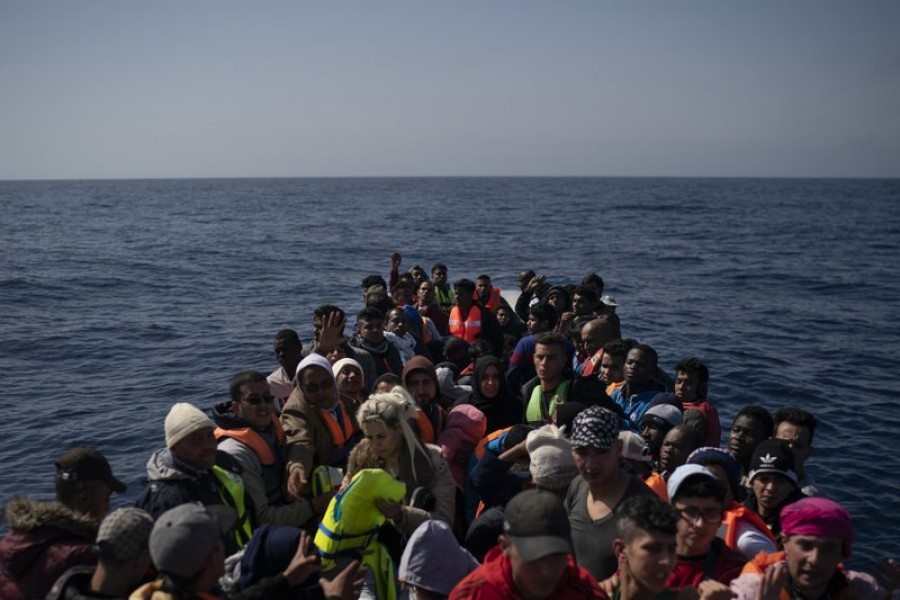An analysis of the reports on the illegal and hazardous journeys on seas by Bangladeshis for migration to Europe or America lately reveals that most of the misadventures were engineered by human traffickers or smugglers. They are chiefly based in Libyan pockets. Local syndicates, in cahoots with their Libyan counterparts, also fleece money from the migrants' blood relatives in Bangladesh. In one of the latest such incidents, the boat which also carried Egyptians was crossing the Mediterranean illegally. It was heading for Italy from Libya. Italian coastguards located the dead Bangladeshis and rescued the survivors during an operation off the coast of Lampione, in late January. The Bangladeshi survivors are now under the custody of Italian authorities, their fate hinged on Italian laws.
In the 2015 crisis involving asylum seekers bound for Europe from Syria and other conflict-ridden zones, the exodus of refugees from the Middle-east, Africa and Asia to Europe received an unprecedented momentum. That was an opportunity for human traffickers from Bangladesh to establish a network with their counterparts based in Libya. Workers who lost their jobs earlier when Saddam Hussein in Iraq and Mummar Gaddafi of Libya were deposed had to take a detour to reach safe zones. It was then they became familiar with the illegal route to Europe from Libya. Now the network of human traffickers has been expanded far and wide. Their local agents have infiltrated almost every nook and cranny of the country to persuade gullible Bangladeshis to attain better life in a rich country. They themselves are awfully desperate too. They overlook the dark side of the utopian dream.
As had been feared, despite the average Europeans' welcoming of the migrants it didn't take time for the hosts to get overpowered by an anti-immigrant sentiment. Amid this charged atmosphere, with the German Chancellor Angela Merkel standing beside the 'refugees', the EU balked at her sympathy, leading to an EU-Germany temporary spat. At the height of the refugee arrivals in their thousands through the Turkey-to-Greece and the northern Africa-to-Italy routes, the whole Europe found itself overwhelmed. Yet despite the migrant entries through the sea routes, the interception by the coastguards and rescue of the desperate refugees from drowning cannot be belittled. After being kept in the temporary camps, many rescued migrants were given 'papers' ligalising their stay. At the same time, the common Europeans', especially the Germans', warmth in dealing with the trouble-making migrants started giving way to apathy, if not hostility, towards the unwanted people. This sudden mood-change followed a few distressing incidents blamed on the 'terrorists' entering Europe in the guise of asylum seekers.
The EU at one point felt compelled to become harder on the migrants' fanning out across Europe. The EU Asylum Law was framed during the crisis. It lost relevance as the number of refugee arrivals kept falling. In 2022, the world-shaking European refugee crisis, coupled with its unpredictable turns, terrorist activities and the social and economic impact on the developed countries were largely consigned to the past. But overseas dreams of some Bangladeshi migrants have yet to die. They look far beyond working abroad under formal manpower export agreements. All this warrants dismantling of the network of the human traffickers. Stricter vigilance can surely stop young people from embarking on such an illegal journey right at the airport. In order to destroy the human trafficking chain, the government should also maintain close cooperation with the authorities of the countries used as transit points.


